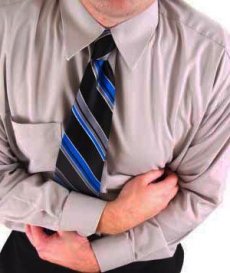New publications
How do you protect yourself from E. coli?
Last reviewed: 01.07.2025

All iLive content is medically reviewed or fact checked to ensure as much factual accuracy as possible.
We have strict sourcing guidelines and only link to reputable media sites, academic research institutions and, whenever possible, medically peer reviewed studies. Note that the numbers in parentheses ([1], [2], etc.) are clickable links to these studies.
If you feel that any of our content is inaccurate, out-of-date, or otherwise questionable, please select it and press Ctrl + Enter.

During the hot summer season, the number of people infected with intestinal bacteria increases sharply. By following certain recommendations, you can protect your body from dangerous microorganisms.
Undoubtedly, in summer, food spoils quickly, so at this time of year there is a high probability of eating something of poor quality. Bacteria multiply rapidly in the heat, getting into meat, dairy and even confectionery products. In addition, there is an urgent need for water, but it is not always possible (in nature) to get safe and clean water, and it is not always possible to create conditions for boiling it. It is also an indisputable fact that E. coli is a disease of dirty hands.
To protect yourself and your loved ones from the effects of E. coli, follow these rules: refuse to buy imported vegetables and fruits. To be completely sure that you are not being deceived, ask for a quality certificate indicating the homeland of the imported fruits. Try to eat vegetables grown with your own hands in the garden, this is the only way you can be completely sure that they do not contain harmful substances. At the same time, do not water the beds with an infusion of cow manure collected in the meadow. This can be dangerous to your health.
Purchased or collected vegetables and fruits must be thoroughly washed under running water. It is advisable to use laundry soap for this purpose. Lettuce, parsley or other greens should be soaked in cold water for a couple of hours before use.
Never try berries, fruits or vegetables at the market before buying them. Refuse to buy cut watermelons or melons, do not ask to cut them on the street. Always (after returning from the street, after using the toilet, before eating) wash your hands thoroughly with soap. Pay special attention to the area between your fingers and cut your nails short. Drink only bottled (industrial) or boiled drinking water. Do not use water from reservoirs even for technical purposes.
Fry or boil meat and mince thoroughly. Use separate boards and knives for cutting vegetables and meat. Wash kitchen utensils thoroughly with hot water and laundry soap after use. Stop biting your nails and pen. Toys brought from kindergarten or from the street should be washed thoroughly with soap.

 [
[